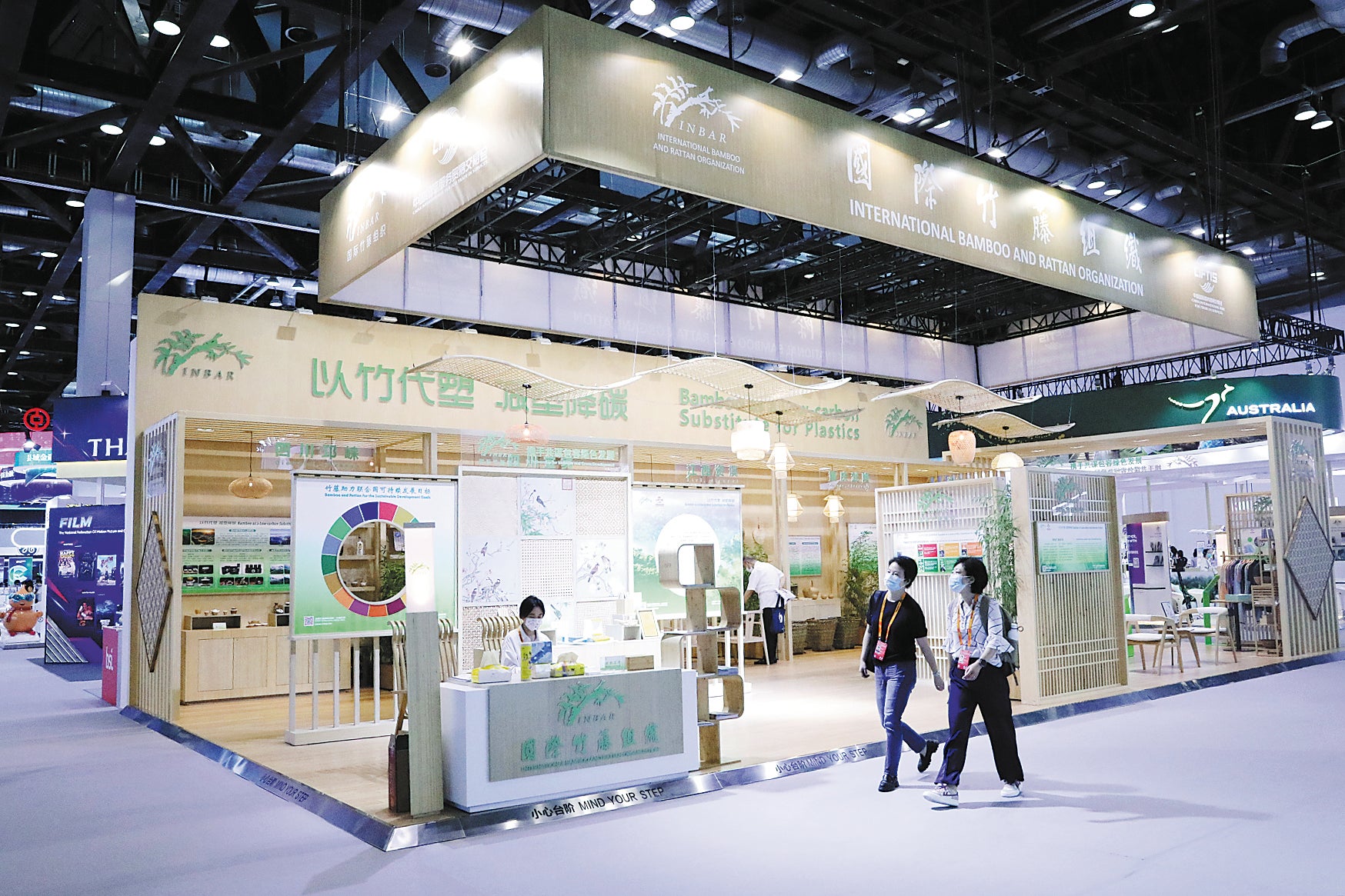As demand grows, green consumption flows
THE ARTICLES ON THESE PAGES ARE PRODUCED BY CHINA DAILY, WHICH TAKES SOLE RESPONSIBILITY FOR THE CONTENTS

Low-carbon consumption is the new buzzword among China’s energy industry cognoscenti, thanks to the country’s twin goals of peaking carbon emissions by 2030 and achieving carbon neutrality by 2060.
The buzz phrase cropped up again and again at the 2022 China International Fair for Trade in Services, or CIFTIS, held in Beijing in September 2022, as hundreds of thousands of visitors realised the benefits of bamboo-made disposable tableware, neon signs that glow without being plugged in, and hydrogen fuel cells that drain only water, which were all on display.
Bamboo, the crowd realised, can not only serve as a meal for pandas or as raw material in the making of furniture but also be transformed into a whole set of tableware, including knives and forks, spoons, straws, cups and even napkins.
Fu Jinhe, director of Host Country Affairs of the International Bamboo and Rattan Organisation, or Inbar, an intergovernmental development organisation that promotes environmentally sustainable development using bamboo and rattan, said: “Bamboo is a green, low-carbon, fast-growing and degradable biomass material. It can replace plastics in many fields. Currently, there are over 10,000 types of bamboo products, covering the areas of basic necessities of life.
“We are witnessing growing demand for green consumption in China. This year, our booth at the CIFTIS grew to 120 square metres [144 square yards], double the size of last year, as our business partners have been growing. It’s expected that our booth area will continue to increase in the coming years.”

Green consumption refers to purchase of products and services that are environmentally friendly by way of use of low-carbon practices in manufacturing, supply-chain activities or related areas, often throughout the value chain.
During this year’s China International Consumer Products Expo held in July in Haikou, Hainan province, “sustainability” and “low-carbon consumption” emerged as key themes. A cup of “zero-carbon” coffee, produced by a domestic coffee brand, hogged the limelight. The production process concerned was said to be carbon-neutral.
Wang Luyuan, founder of Peasup, a Chinese plant-based snacks maker, said more and more consumers are embracing the sustainable lifestyle concept in China these days.
The company, founded in 2019, is one of the early birds to sell its products in the plant-based food segment in China. Its aim is to lead the trend of plant-based diets among young people. For now, the start-up offers chickpea-based snacks, soy milk and pasta products.
Wang said plant-based food production reduces carbon emissions. To get the same 50g of protein, the carbon footprint of beans is much lower than that of meat.
According to a recent report from global accounting firm PwC, in many areas, including food, clothing, living, transportation and tourism, the green consumption style has found wide acceptance.
Cai Xiaoying, ESG managing partner of PwC China, said, “The consumption sector, as a fundamental propeller of economic development, is leading industrial revolution toward a greener, more convenient and more innovative direction.”
A report on green consumption released by China’s e-commerce platform JD showed that in 2021, 93 per cent of the surveyed consumers paid attention to a healthy lifestyle, among which the number of consumers born in or after 1990 surged by 134 per cent year-on-year.
“Sustainability has become a new communication context between consumers and society,” the report stated.
Chen Jia, an independent researcher in international strategy, said: “Boosting green consumption is the route the country must take to implement green economic development strategies. Low-carbon, green consumption is also an inevitable trend for global consumption transformation. Against a backdrop of China’s consumption upgrade, enterprises should explore new business growth points.”
He Jingwei contributed to this story.
